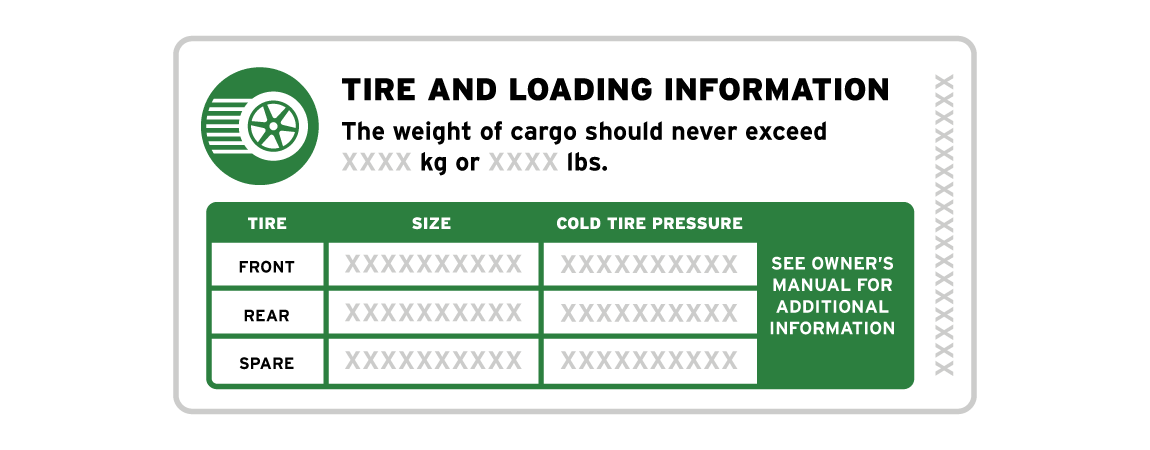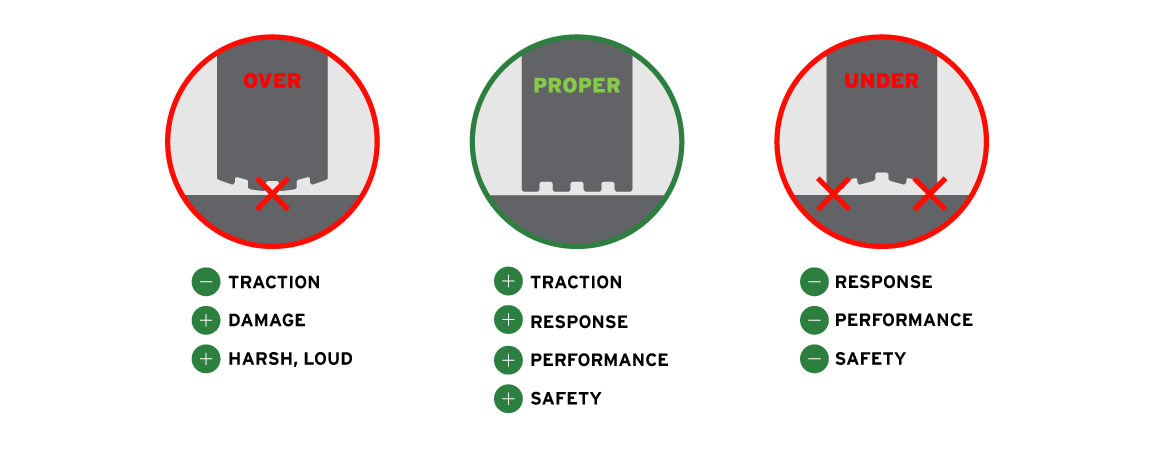TIRE AIR PRESSURE
Tire air pressure should be checked at least once a month using a tire pressure gauge. Tires should be checked when they are cold (before being driven) or have been driven on less than one mile. Tires periodically lose air pressure even if they do not have leaks. Always refer to the vehicle’s door placard for specifications and proper tire air pressure.

TIRE PLACARDS can help you select the right tire size for your vehicle, as well as the appropriate cold tire air pressure. Always check the tire air pressure when the tire is cold before driving the car any distance greater than one mile, as pressure tends to change once the tire has reached its operating temperature

PROPERLY INFLATED TIRES
The correct tire air pressure will allow the tires to achieve their optimum performance level and properly support the load of the vehicle. Not only is proper tire air pressure a safety issue, having the correct tire air pressure means the tires will wear longer and improve fuel consumption. Improperly inflated tires can lead to premature tire wear, and poor handling among other things.
OVER-INFLATED TIRES
If the tire pressure is too high, meaning the tire is over-inflated, less of the tire tread is making contact with the road. The lack of road contact can also increase the distance needed to safely bring the vehicle to a stop. Ride comfort and uneven tire wear can also be side effects of over inflation.
UNDER-INFLATED TIRES
If the tires are under-inflated, the tire air pressure is too low, and too much pressure may be applied to the outside edges of the tire. Under inflation can increase the rolling resistance (friction) of the tire, decreasing fuel economy and potentially increase the tire’s operating temperature.


